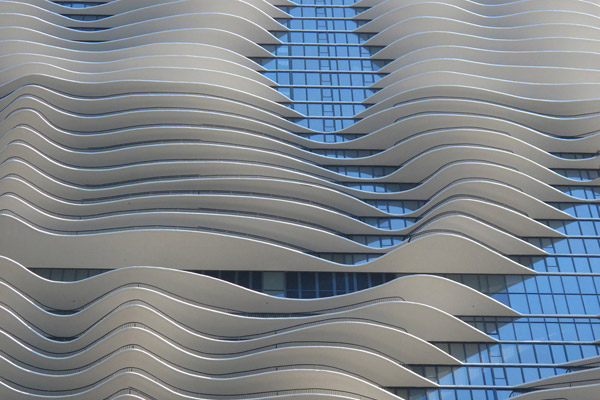
* The Wall Street Journal has a great interview with Jeanne Gang on the future of architecture:
We're at the end of a boom that demanded architects focus on iconic buildings that prized shape over structure and form. On the plus side, it pushed forward our understanding of both. Some of the buildings completed in the last 10 years would not have been possible at any other time in history. The fact that the Burj Khalifa in Dubai exists blows my mind—it's just awesome. But now we're at the dawn of a new mode of work requiring cross-collaboration, and somebody who can see all the different facets of a problem is critical. We see it in science all the time, where none of the most important problems can be tackled by a single discipline.
It explains a lot about her approach to the future of the bungalow, her interest in reversing the Chicago River, and Studio Gang's work on Northerly Island. It's odd, though, that the piece calls her a "renegade architect." Renderings for Studio Gang's design for Writer's Theatre are out.
* Gang has teamed with Theaster Gates, which makes sense, as he's an urban planning-trained artist; and the WSJ just gave him a well-deserved award.
* An amazing piece from the Tribune on King Daniel Ganaway, famous for the photograph The Spirit of Transportation:
The name has biblical connotations, and Ganaway was indeed a religious man. But he also was one of the great photographers of the 1920s and '30s, celebrated for his pictures of industrial Chicago, who won a prestigious contest against great photographers of his day including Edward Weston, Man Ray and Paul Strand.
And he was an African-American who courted danger by marrying and having a child with a Swedish immigrant named Pauline Barrew, in a time when interracial relationships were not just taboo but illegal in some areas of the United States.
* In RubyHornet, Alexander Fruchter laments Chicago's drill scene, the one that produced Chief Keef, inspired by seeing Lil' Mouse on stage at the Metro:
I turned my attention towards the stage, where I saw Lil’ Mouse and posse performing his record “Get Smoked”. For a second, everything kind of froze and the idea that a full Metro, which holds roughly 1,100 people, were all going nuts to a 13 year-old performing a record which basically states, “don’t fuck with me, I will kill you,” really hit me. That was as much as I could take. And I simply can’t support it.
This is the part that really got to me, when he reflects on going to New York and talking Chicago rap:
The thing is, many people seemed to believe the music was something like a joke, or a cool/trendy thing. The latest wave. They are easily able to turn off the fact that the artists making this music grow up in extreme poverty, are in trouble with the law, and in Lil’ Mouse’s case, haven’t even fully gone through puberty. To them, the music exists in a far off place.
Chief Keef and rappers like him get talked about in the context of "romanticization," but this is worse—the ironization of the drill scene.
* If you like new music—you know, the thing that's classical-but-not and made in the 20th and 21st centuries, which is probably being held back by the terminology as much as anything—the Okkyung Lee/David Berhman concert tomorrow looks excellent.
Photograph: John Pickens (CC by 2.0)


